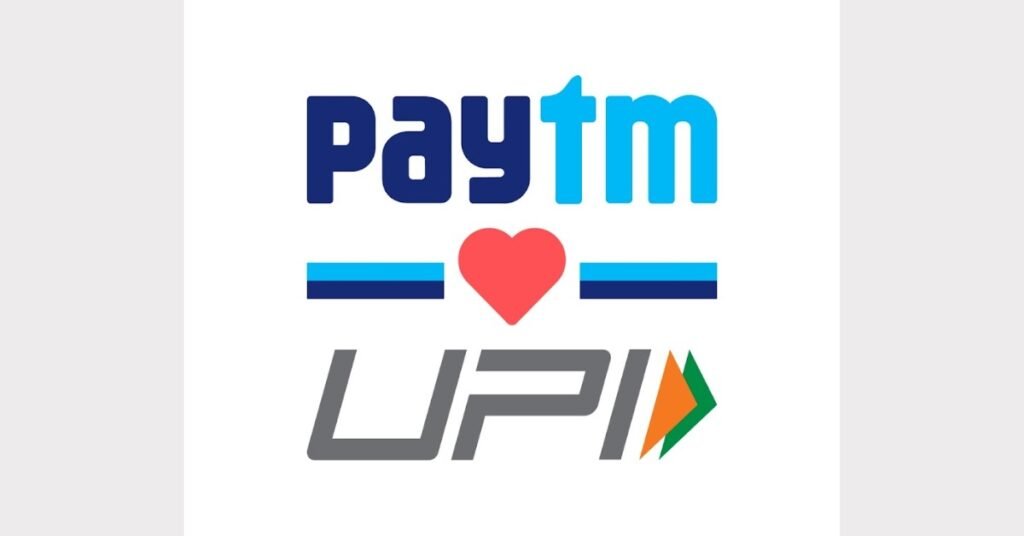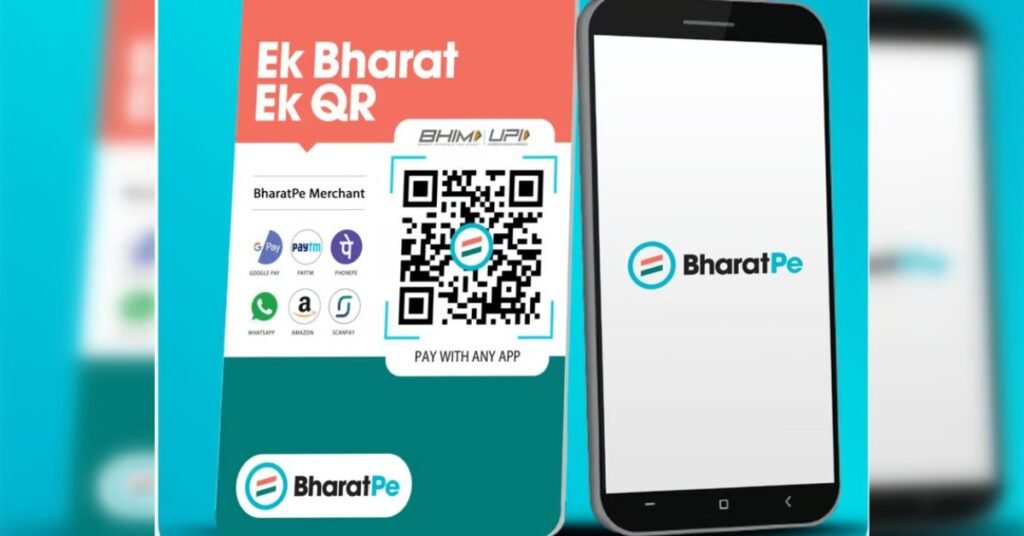In recent years, India has witnessed a surge in financial technology (fintech) startups that are revolutionizing the way people access and manage their finances. These startups leverage technology to provide innovative solutions for banking, payments, lending, and investment, thereby driving financial inclusion and empowering millions of individuals and businesses across the country. Here, we explore the top 10 fintech startups in India that are leading this transformation.
Table of Contents
1. Paytm

Founded in 2010 by Vijay Shekhar Sharma, Paytm has emerged as one of India’s leading digital payment platforms. Initially launched as a mobile recharge and bill payment service, Paytm has diversified its offerings to include digital wallets, UPI payments, online shopping, and financial services such as mutual funds, insurance, and gold investments. With its user-friendly interface and widespread acceptance, Paytm has become synonymous with digital payments in India.
| Attribute | Details |
|---|---|
| Founded | 2010 |
| Founder | Vijay Shekhar Sharma |
| Headquarters | Noida, Uttar Pradesh |
| Overview | India’s leading digital payment platform offering mobile wallets, UPI payments, online shopping, and financial services such as mutual funds and insurance. |
2. PhonePe

Acquired by Flipkart in 2016, PhonePe is a leading UPI-based digital payments platform in India. Founded by Sameer Nigam and Rahul Chari, PhonePe offers a wide range of services including money transfers, bill payments, recharges, and online shopping. Its seamless integration with major banks and merchants has made PhonePe a preferred choice for millions of users seeking convenient and secure digital payment solutions.
| Attribute | Details |
|---|---|
| Founded | 2015 |
| Founders | Sameer Nigam, Rahul Chari |
| Headquarters | Bengaluru, Karnataka |
| Overview | UPI-based digital payments platform offering money transfers, bill payments, recharges, and online shopping. Acquired by Flipkart in 2016. |
3. Razorpay

Razorpay, founded in 2014 by Harshil Mathur and Shashank Kumar, is a leading payment gateway and fintech platform for businesses. It offers a suite of payment solutions including online payments, payment links, subscription billing, and invoicing, catering to the needs of small and large enterprises alike. Razorpay’s robust technology stack and focus on customer experience have made it a trusted partner for thousands of businesses across India.
| Attribute | Details |
|---|---|
| Founded | 2014 |
| Founders | Harshil Mathur, Shashank Kumar |
| Headquarters | Bengaluru, Karnataka |
| Overview | Payment gateway and fintech platform for businesses offering online payments, payment links, subscription billing, and invoicing. |
4. Policybazaar

Policybazaar, founded in 2008 by Yashish Dahiya, Alok Bansal, and Avaneesh Nirjar, is India’s largest online insurance aggregator. It allows users to compare and buy various insurance products such as health insurance, life insurance, car insurance, and travel insurance from leading insurers in the country. With its user-friendly interface and unbiased advice, Policybazaar has simplified the process of purchasing insurance and has helped increase insurance penetration in India.
| Attribute | Details |
|---|---|
| Founded | 2008 |
| Founders | Yashish Dahiya, Alok Bansal, Avaneesh Nirjar |
| Headquarters | Gurugram, Haryana |
| Overview | India’s largest online insurance aggregator providing comparison and purchase options for health, life, car, and travel insurance policies. |
5. Lendingkart

Lendingkart, founded in 2014 by Harshvardhan Lunia and Mukul Sachan, is a digital lending platform that provides working capital loans to small and medium enterprises (SMEs) in India. Leveraging data analytics and machine learning, Lendingkart offers quick and hassle-free loans to businesses that may have difficulty accessing traditional bank financing. Its innovative credit evaluation model has enabled Lendingkart to serve thousands of SMEs across the country.
| Attribute | Details |
|---|---|
| Founded | 2014 |
| Founders | Harshvardhan Lunia, Mukul Sachan |
| Headquarters | Ahmedabad, Gujarat |
| Overview | Digital lending platform offering working capital loans to small and medium enterprises (SMEs) in India using data analytics and machine learning. |
6. Zerodha

Zerodha, founded in 2010 by Nithin Kamath, is India’s largest discount brokerage firm. It offers a range of financial services including online stock trading, commodities trading, mutual funds, and bonds. Zerodha is known for its low-cost brokerage fees, transparent pricing, and innovative trading platforms such as Kite and Coin. With its focus on empowering retail investors, Zerodha has played a significant role in democratizing access to financial markets in India.
| Attribute | Details |
|---|---|
| Founded | 2010 |
| Founder | Nithin Kamath |
| Headquarters | Bengaluru, Karnataka |
| Overview | India’s largest discount brokerage firm offering online stock trading, commodities trading, mutual funds, and bonds. |
7. BharatPe

BharatPe, founded in 2018 by Ashneer Grover and Shashvat Nakrani, is a fintech platform that offers digital payment solutions for merchants. It allows small businesses to accept payments through QR codes, UPI, and other digital modes, without the need for POS machines or additional hardware. BharatPe also provides working capital loans and other financial services to merchants, helping them grow their businesses and improve their cash flow.
| Attribute | Details |
|---|---|
| Founded | 2018 |
| Founders | Ashneer Grover, Shashvat Nakrani |
| Headquarters | New Delhi |
| Overview | Fintech platform offering digital payment solutions for merchants including QR codes, UPI, and working capital loans. |
8. CRED

CRED, founded in 2018 by Kunal Shah, is a members-only platform that rewards users for paying their credit card bills on time. In addition to offering a convenient way to manage multiple credit cards, CRED provides exclusive rewards, discounts, and benefits to its members. With its focus on financial responsibility and creditworthiness, CRED has attracted a loyal user base and has become one of the most valuable fintech startups in India.
| Attribute | Details |
|---|---|
| Founded | 2018 |
| Founder | Kunal Shah |
| Headquarters | Bengaluru, Karnataka |
| Overview | Members-only platform rewarding users for paying credit card bills on time, offering exclusive rewards, discounts, and benefits. |
9. Niyo

Niyo, founded in 2015 by Vinay Bagri and Virender Bisht, is a fintech platform that offers digital banking solutions for salaried employees. Its flagship product, Niyo IDFC First Bank Savings Account, provides features such as zero-balance accounts, digital salary advances, and savings goals. Niyo aims to simplify banking for individuals and help them achieve their financial goals through its innovative products and services.
| Attribute | Details |
|---|---|
| Founded | 2015 |
| Founders | Vinay Bagri, Virender Bisht |
| Headquarters | Bengaluru, Karnataka |
| Overview | Fintech platform offering digital banking solutions for salaried employees including zero-balance accounts and digital salary advance. |
10. Pine Labs

Pine Labs, founded in 1998 by Lokvir Kapoor, is a leading provider of payment acceptance and merchant commerce solutions. It offers POS terminals, payment gateways, and loyalty programs to merchants, enabling them to accept digital payments and manage their businesses more efficiently. Pine Labs also provides consumer financing and installment payment solutions, making it easier for consumers to make purchases and pay in installments.
| Attribute | Details |
|---|---|
| Founded | 1998 |
| Founder | Lokvir Kapoor |
| Headquarters | Noida, Uttar Pradesh |
| Overview | Provider of payment acceptance and merchant commerce solutions including POS terminals, payment gateways, and consumer financing. |
In conclusion, these fintech startups are at the forefront of India’s financial revolution, driving innovation, inclusion, and empowerment. By leveraging technology and customer-centric approaches, they are transforming the way people manage their money, access financial services, and participate in the digital economy. As they continue to grow and expand their offerings, they will play a crucial role in shaping the future of finance in India and beyond.
Frequently Asked Questions (FAQs) about Fintech startups in India:
1. What are Fintech startups?
Fintech startups are companies that use technology to innovate and provide financial services. They leverage digital platforms, artificial intelligence, data analytics, and other technologies to offer solutions for banking, payments, lending, insurance, wealth management, and other areas of finance.
2. What services do Fintech startups offer?
Fintech startups offer a wide range of services, including:
- Digital payments and wallets
- Peer-to-peer lending and crowdfunding
- Online lending and borrowing
- Insurance comparison and purchase
- Wealth management and investment advisory
- Personal finance management
- Blockchain and cryptocurrency solutions
- Financial education and literacy programs
3. How are Fintech startups changing the financial landscape in India?
Fintech startups are driving innovation and disruption in India’s financial sector by:
- Increasing financial inclusion by providing services to underserved segments of the population.
- Offering convenient and affordable digital financial services, especially in remote and rural areas.
- Democratizing access to financial products and services for individuals and businesses.
- Reducing the cost and complexity of financial transactions and services.
- Improving efficiency, transparency, and security in financial processes.
- Encouraging competition and innovation in traditional banking and financial services.
4. What are some notable Fintech startups in India?
Some notable Fintech startups in India include:
- Paytm
- PhonePe
- Razorpay
- Policybazaar
- Lendingkart
- Zerodha
- BharatPe
- CRED
- Niyo
- Pine Labs
5. How can consumers benefit from Fintech startups?
Consumers can benefit from Fintech startups in several ways, including:
- Convenient and secure digital payment options.
- Access to affordable loans and credit facilities.
- Transparent and unbiased insurance comparison and purchase.
- Personalized investment advice and wealth management solutions.
- Enhanced financial literacy and education resources.
- Faster and more efficient financial transactions and services.
- Improved access to financial products and services for underserved communities.
6. Are Fintech startups regulated in India?
Yes, Fintech startups in India are subject to various regulations and guidelines issued by regulatory authorities such as the Reserve Bank of India (RBI), Securities and Exchange Board of India (SEBI), Insurance Regulatory and Development Authority of India (IRDAI), and others. These regulations govern areas such as licensing, compliance, data security, consumer protection, and anti-money laundering (AML) measures.
7. How can I trust the security and reliability of Fintech startups?
Fintech startups prioritize security and reliability by implementing robust cybersecurity measures, encryption protocols, and data protection standards. Additionally, many Fintech startups are regulated entities that adhere to industry best practices and comply with regulatory requirements. Consumers can also look for trust indicators such as partnerships with established financial institutions, positive user reviews and ratings, and transparent terms and conditions when choosing Fintech products and services.
Also, read


